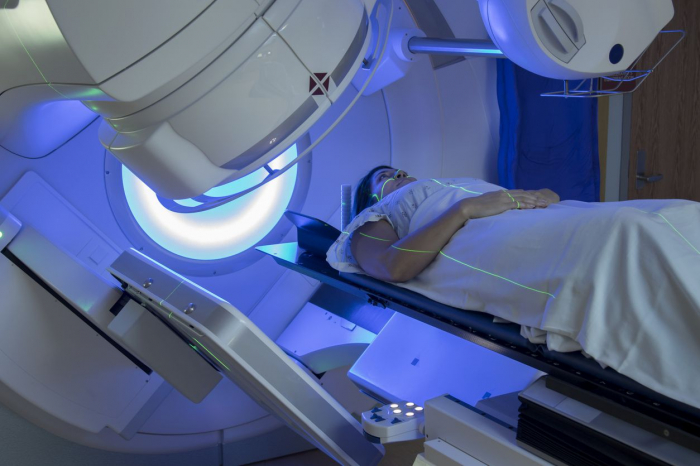Nuclear medicine uses radioactive isotopes in a variety of ways. One of the more common uses is as a tracer in which a radioisotope, such as technetium-99m, is taken orally or is injected or is inhaled into the body. The radioisotope then circulates through the body or is taken up only by certain tissues. Its distribution can be tracked according to the radiation it gives off. The emitted radiation can be captured by various imaging techniques, such as single photon emission computed tomography (SPECT) or positron emission tomography (PET), depending on the radioisotope used. Through such imaging, physicians are able to examine blood flow to specific organs and assess organ function or bone growth. Radioisotopes typically have short half-lives and typically decay before their emitted radioactivity can cause damage to the patient’s body.
Therapeutic applications of radioisotopes typically are intended to destroy the targeted cells. This approach forms the basis of radiotherapy, which is commonly used to treat cancer and other conditions involving abnormal tissue growth, such as hyperthyroidism. In radiation therapy for cancer, the patient’s tumor is bombarded with ionizing radiation, typically in the form of beams of subatomic particles, such as protons, neutrons, or alpha or beta particles, which directly disrupt the atomic or molecular structure of the targeted tissue. Ionizing radiation introduces breaks in the double-stranded DNA molecule, causing the cancer cells to die and thereby preventing their replication. While radiotherapy is associated with unpleasant side effects, it generally is effective in slowing cancer progression or, in some cases, even prompting the regression of malignant disease.
The use of radioisotopes in the fields of nuclear medicine and radiotherapy has advanced significantly since the discovery of artificial radioisotopes in the first decades of the 1900s. Artificial radioisotopes are produced from stable elements that are bombarded with neutrons. Following that discovery, researchers began to investigate potential medical applications of artificial radioisotopes, work that laid the foundation for nuclear medicine. Today diagnostic and therapeutic procedures using radioactive isotopes are routine.
Read the original article on britannica.com.
More about: Radioactive
















































